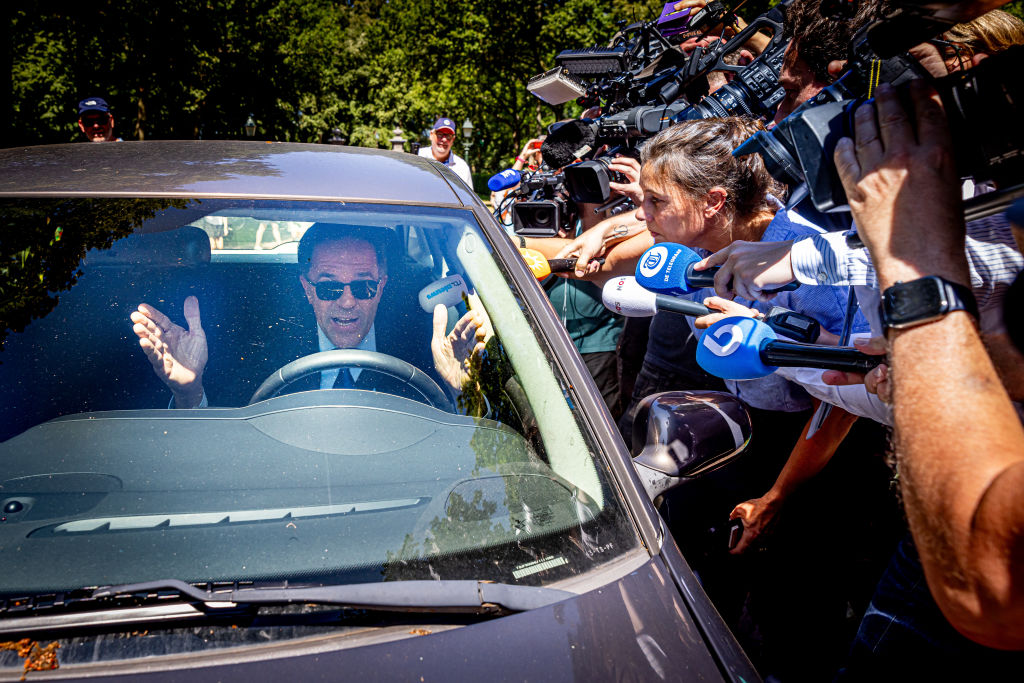
Dutch Prime Minister Mark Rutte’s government abruptly collapsed on Friday amid infighting over migration policy. Rutte, who’s led the Netherlands since 2010, effectively brought his fourth administration to an end after he gave his coalition partners an ultimatum to limit the right to family reunions for refugees from war zones.
The coalition partners — Rutte’s VVD, the Christian Democrats, progressive D66 and the smaller Christian Union — had been in talks over asylum policy for weeks. Though they were close to a deal, the conflict escalated Wednesday when Rutte abruptly introduced non-negotiable demands. The troubles snowballed from there.
Read More: See How the Netherlands Is Housing Asylum-Seekers in Former Prisons
“Migration is a large and important subject, both politically and socially,” Rutte told reporters in the Hague Friday night. “Now that we cannot come to an agreement on this subject, we have jointly decided that the political support disappeared.”
More from TIME
What’s next?
Rutte offered the government’s resignation to King Willem-Alexander. A debate on the collapse of the cabinet will be held Monday at the lower house of the Dutch parliament, with lawmakers pulled back from their summer recess to attend. Rutte will kick off the discussion, scheduled to start at 10:15 a.m., with a statement. Dutch opposition parties have called a vote of no confidence in Rutte in an attempt to oust him as caretaker premier until the next election. The opposition will submit the motion during the parliamentary debate.
When is the election?
A vote will be held mid-November at the earliest, the country’s Electoral Council said Friday, given Dutch law that allows time for new parties to register and polling stations to be organized, among other factors. Until then, the cabinet will stay on in a caretaker capacity.
Will Rutte run again?
There’s a good chance Rutte, 56, will run again in pursuit of a fifth term. He’s the nation’s longest-serving Dutch prime minister and remains broadly popular, with an ability to shake off troubles, earning him the nickname “Teflon Mark.”
Rutte hinted last year that he’s nowhere near done. “I do feel that I’m halfway through my time as prime minister,” Rutte said, calling the role “the most beautiful job in the world.”
What are his chances?
Some polls suggest Rutte’s party remains in the lead and that he might secure a new term by stitching together a different coalition. But Rutte also oversaw the worst Senate election result of his premiership this year as the Farmer-Citizen Movement, or BBB, became the biggest party in the Dutch upper house after opposing a government push to halve nitrogen emissions.
Rutte may turn to the right wing for coalition partners more in sync with his new stance on migration. Environmental policies, including the nitrogen crisis, will also be important topics for any deal.
What will it mean for policy?
Policymaking is likely to be at a standstill, putting decisions on hot-button issues like the housing market, climate and nitrogen targets on ice. Still, the caretaker cabinet must come up with a new budget for next year and unveil it in September during Budget Day, or Prinsjesdag. The budget is likely to lean heavily on pre-existing policies.
Rutte pledged that the caretaker cabinet will continue to support Ukraine in its military response to Russia’s invasion. He spoke on Saturday with President Volodymyr Zelenskiy.
What will the campaign look like?
Rutte’s move to splinter his coalition over migration raised the possibility he was deliberately pushing his party to the right at a time when populism appears on the rise in Europe. Therefore, it’s likely that Rutte will try to keep the migration debate at center stage.
The coalition’s collapse comes amid a rise of anti-migration sentiment, often stoked by the Freedom Party’s Geert Wilders, who came to prominence for his anti-Islamic positions. Wilders has signaled he’s willing to work with Rutte.
Read More: What It Means to Be European Today
Although Rutte may be betting on a hard migration stance going into the next election, other challenges abound. The government has been dealing with issues including a lack of affordable housing and deterioration in health care and education amid a chronic labor shortage. Rutte also faces the fury of Dutch farmers over the government’s goal of halving nitrogen output by 2030. Thousands of farmers are likely to be forced out of business, and they’ve formed a movement that’s pushed the BBB to the forefront of Dutch politics.
Is there an impact on the upcoming export controls on ASML’s sales to China?
The U.S. pressed the Netherlands and other nations to help stop China from further developing its own chip industry. Dutch and Japanese officials agreed in principle to join the U.S. campaign. Export controls that will restrict more of ASML Holding NV’s chipmaking machines from being sent to China are due to come into effect on Sept. 1 despite the domestic turmoil. The regulations will force ASML, the largest European tech firm by market valuation, to apply for licenses to ship some advanced deep ultraviolet lithography, or DUV, systems.
More Must-Reads From TIME
- The 100 Most Influential People of 2024
- How Far Trump Would Go
- Scenes From Pro-Palestinian Encampments Across U.S. Universities
- Saving Seconds Is Better Than Hours
- Why Your Breakfast Should Start with a Vegetable
- 6 Compliments That Land Every Time
- Welcome to the Golden Age of Ryan Gosling
- Want Weekly Recs on What to Watch, Read, and More? Sign Up for Worth Your Time
Contact us at letters@time.com